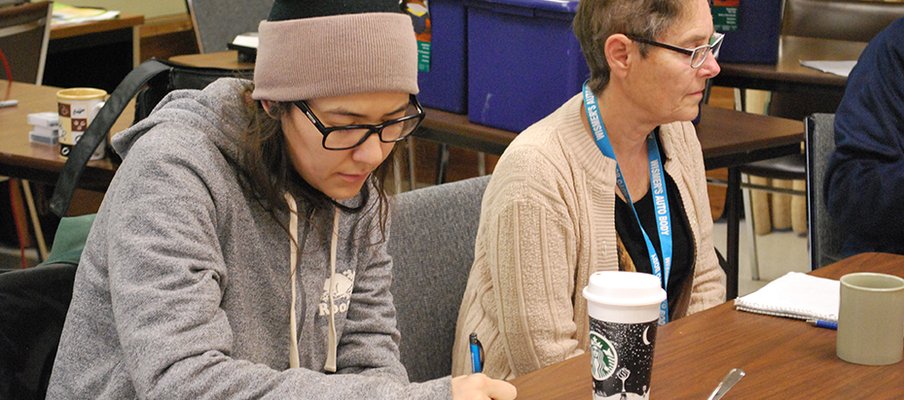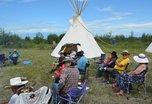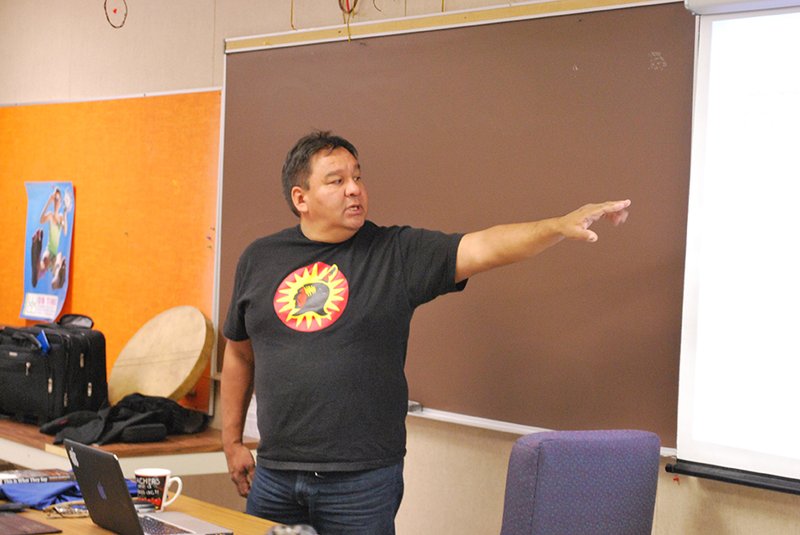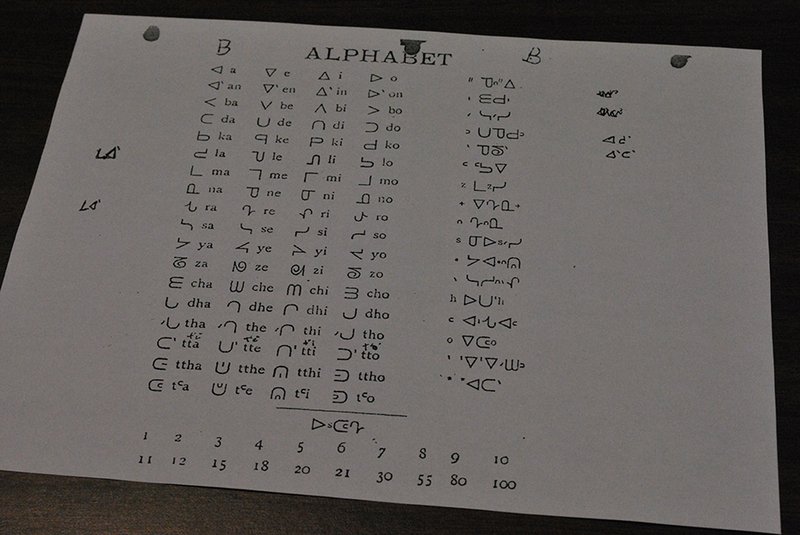Language Key to Culture

Related Programs

For First Nations peoples living in traditional societies, culture is embedded in the language. Learning a First Nations’ language can help build an important connections for non-Aboriginals working with First Nations communities.
Melody Wood, Indigenous Knowledge Systems Researcher, Saskatchewan Indian Cultural Centre (SICC), says, “Our language is very descriptive and it explains a lot of things that can’t be quite properly translated into English. If you know your language then you can better understand culture and the First Nations way of life.” The SICC partnered with NORTEP/NORPAC, the Northern Teacher Education Program and the Northern Professional Access College, to offer a Dene Language Immersion Camp in La Ronge from November 2-6, 2015, with the funding support from SaskCulture’s Aboriginal Arts and Culture Leadership Grant.

Dene is one of the smaller populations in Saskatchewan,” says Wood. She explains that the language is stronger in more remote communities and for those who have stayed in their communities instead of moving south and to urban centres.
The Dene Language Immersion Camp was designed for non-Dene speaking professionals from all cultures. The participants include educators, health professionals, people who work in industry and police officers, people who work with Dene people. “There are a lot of people who are working with Dene people who can’t properly communicate with them, after consultations and discussion it was decided that we would try to address that problem,” says Wood.
The program was modelled as a ‘language nest’. “The idea is that for the entire time you are in the program that you use as little English as possible, preferably no English, fumbling through it as a child would,” adds Wood.
An intensive workshop offers a chance to learn greetings and the questions people need to ask in everyday interactions. “They will practice every day with fluent Dene speakers. Because it is the north we will also have land-based learning. one day there will be a Dene Sweat Lodge and Feast, and another day will be a cookout and a chance to sample some of the northern foods. They will bring in Knowledge Keepers and elders to provide more in-depth information,” says Wood.
"It is important for people to take a few seconds and learn somebody else's language and culture, to walk in their language footpath for a bit, and to learn who they are."
Instructor Allan Adam brings experience in broadcasting, interpreting, First Nations leadership, and traditional lifestyle. He is passionate about language and has travelled the world to learn. “I study languages all the time. I don’t dissect them. I just try to practice them. I try to hear them and feel them so I can start learning to speak them,” he says.
He adds, “For a period we feared we’d be losing the language. In some cases the usage is diminishing. Even in some of the northern communities you’ll hear the kids only speaking English so we want to make sure we touch as many people as we can. I’m living proof you can learn it even later in life if you have the determination and willingness to do it.
“It is important for people to take a few seconds and learn somebody else’s language and culture, to walk in their language footpath for a bit, and to learn who they are,” says Adam.




